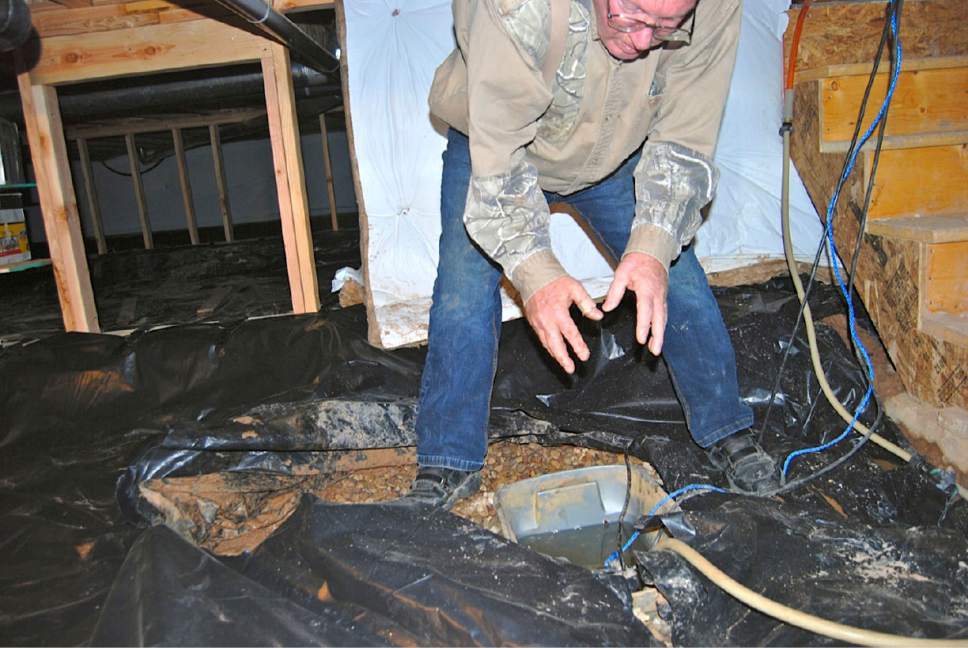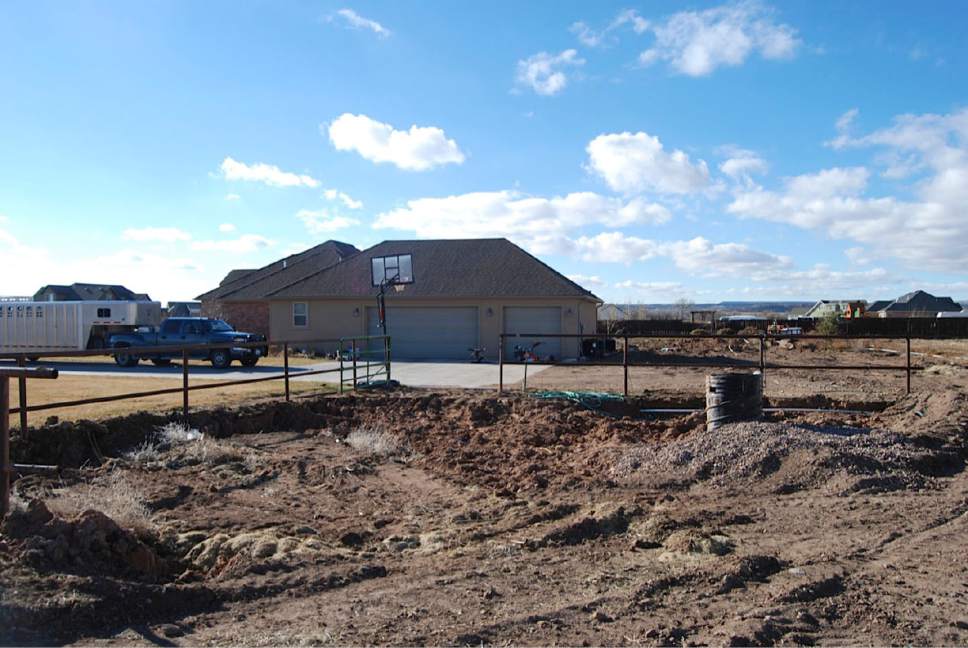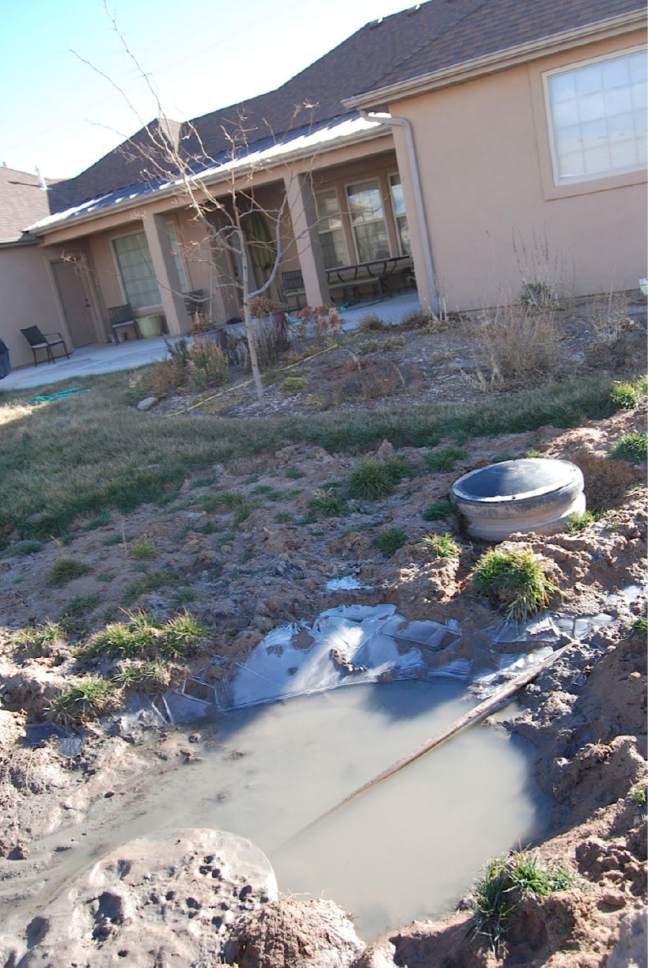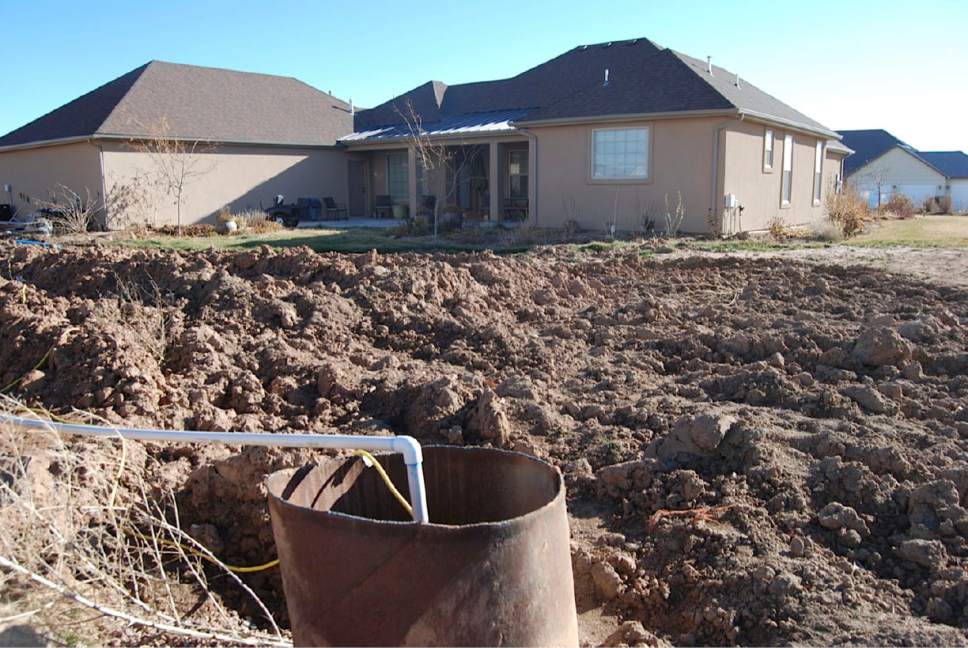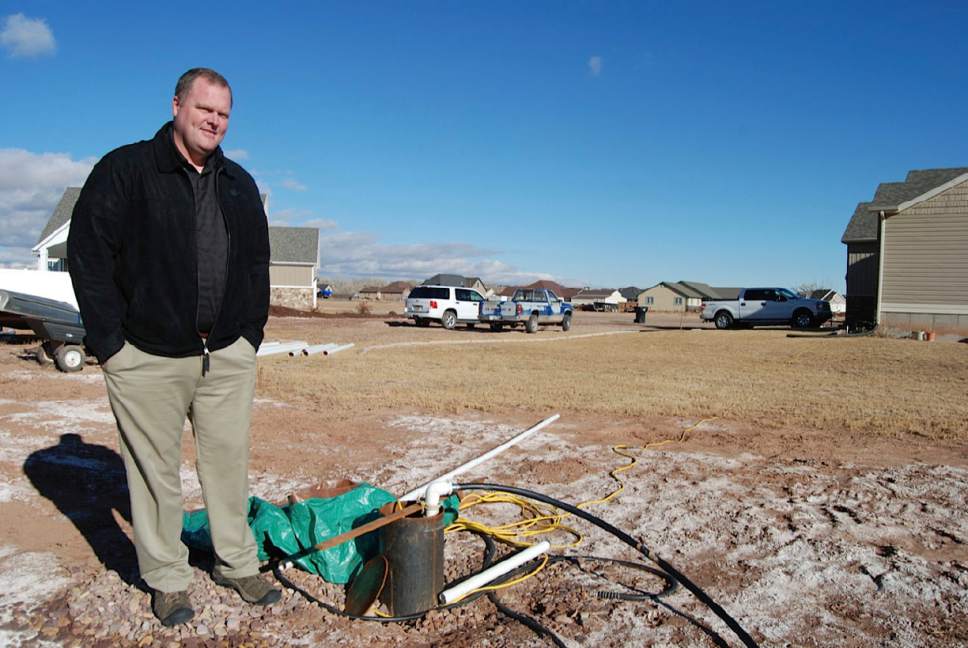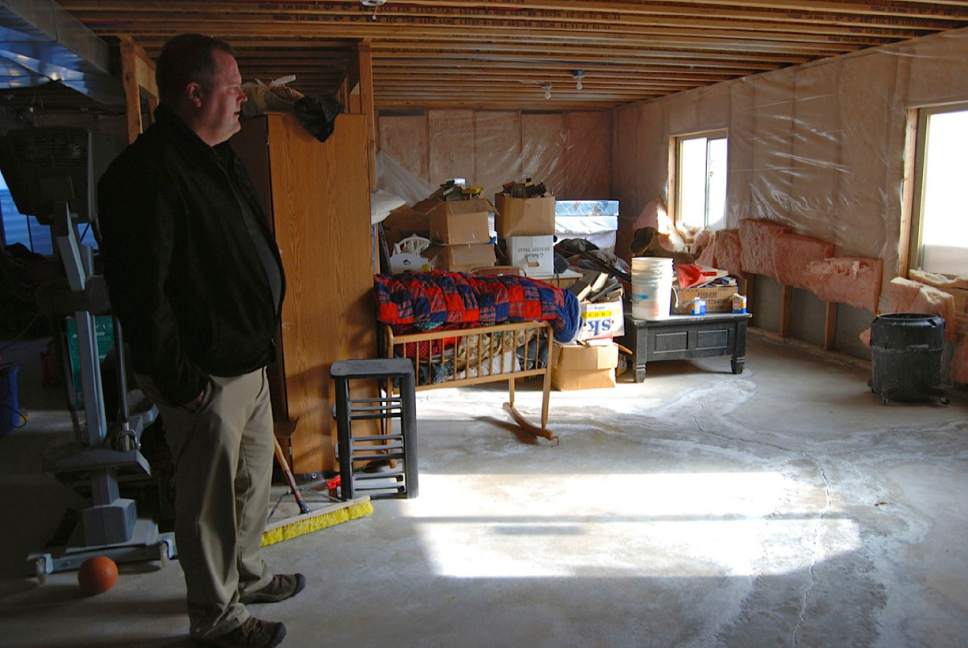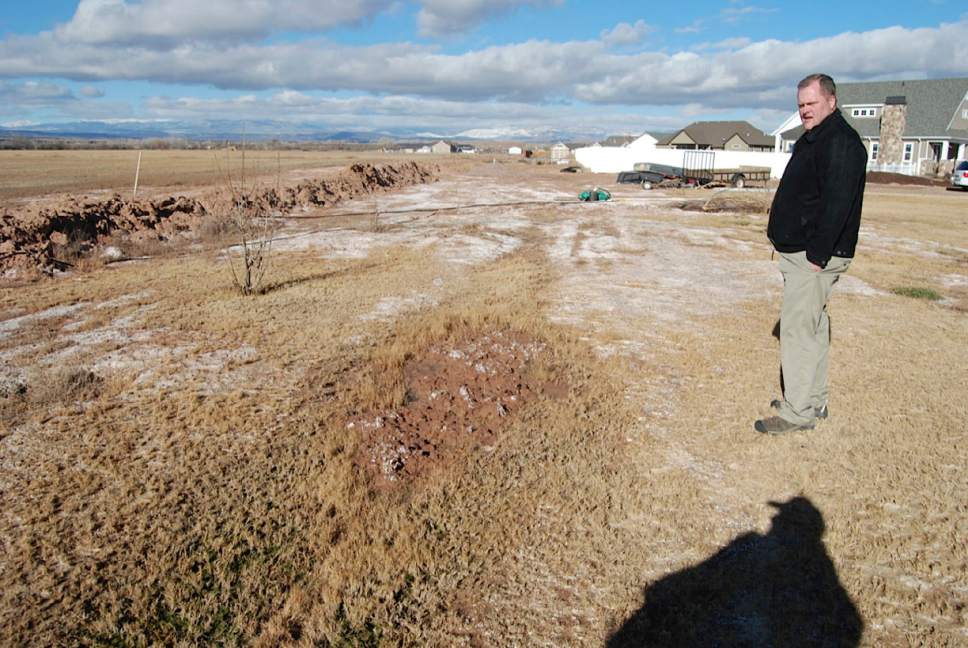This is an archived article that was published on sltrib.com in 2017, and information in the article may be outdated. It is provided only for personal research purposes and may not be reprinted.
Utah taxpayers and the city of Roosevelt will help a Duchesne County subdivision that has festered in its own sewage for the past few years, thanks to poor planning and engineering tests some say were rigged.
The Utah Community Impact Board (CIB) has approved $2.5 million in loans and grants to Roosevelt to extend a sewer line into the Stonegate subdivision, replacing failed septic systems that have left homes mired in effluent.
The Utah Water Quality Board would cover much of the $6 million project's remaining costs, with the project's developer, Bob West, kicking in a token amount.
"I'm glad we are finally solving this problem. It should have been solved long ago," said Dan Robinson, a dentist whose Stonegate home has been among the worst affected.
Robinson is also lead plaintiff in a federal lawsuit against West and Stonegate contractors, alleging fraud as they sought county building permits.
In 2003, county officials approved the 59-lot subdivision two miles west of Roosevelt in unincorporated Hancock Cove, boggy land that critics say should never have been approved for residential subdivisions without sewer service.
Today it is painfully clear the agricultural lands cannot safely absorb septic discharge, but the question of who is responsible remains almost as murky as the sewage pooling around Robinson's uninhabitable property.
Earlier this year, Roosevelt annexed Stonegate and another 500 undeveloped acres into the city, in what some saw as an act of mercy that also qualifies the subdivision for public funding to extend a municipal sewer line.
But in an ironic twist, West could be a big beneficiary of the new line since he owns much of the undeveloped agricultural property around Stonegate, land likely to become far more valuable once sewer service is available.
Reached Tuesday, the prominent Roosevelt real-estate broker declined an interview request.
"What can I say?" West asked. "I'm just trying to solve a problem."
Public officials have long argued conditions changed after the subdivision was approved, blaming the subsequent septic failures on rising water tables.
Regardless of where fault lies, the situation amounts to a public health crisis that only a costly wastewater-collection system can solve, local officials say.
Using federal mineral revenues, the CIB gives loans and grants to counties and towns that host drilling and mining. These grants are supposed to fund projects that address impacts associated with extractive industries.
The Stonegate project's high cost gave the CIB pause, coming in at $127,000 per residential unit served. That's three to four times what West sold the lots for. For his part, West has pledged $15,000 toward the project, which some CIB members blasted as "woefully inadequate."
At a meeting last Thursday, some members said Roosevelt's $2.5 million grant request lets the county and developer off too easy for missteps that created the morass.
"There were a lot of things that were learned," replied CIB member Ron Winterton, a Duchesne County commissioner. He attributed the mistakes to the region's rapid growth rate back when high oil-prices were supporting a drilling boom outside Roosevelt.
"The growth brought a lot of these problems we didn't have the foresight to see," Winterton said. "I can't place blame on any one entity. They all intended to do good."
CIB members were divided on how much of the funding should be paid back. After a string of split votes, the panel settled on a $2 million grant with a $500,000 low-interest loan.
At its April 19 meeting, the Utah Water Quality Board also will consider chipping in money for Stonegate, with a $2 million grant and a $1.2 million no-interest loan.
Asked why the state should be expected to help, Walt Baker, director of the Utah Division of Water Quality, said the septic nightmare isn't isolated to a few homes.
"We are looking at a long-term fix that protects public health and the waters of the state," Baker said. "This serves the broader public interest."
The DEQ cash comes with a requirement that Roosevelt impose impact fees on future sewer hookups.
"It is fair they pay their appropriate share," Baker said.
Roosevelt City Manager Ryan Snow told the CIB that the hookup fee would be around $3,000, but existing Roosevelt homeowners, who have already been slapped with a 29 percent rate increase, would not bear costs associated with the sewer expansion.
Snow acknowledged the contribution of West is not much.
"I'm refraining from getting into fault," Snow said. "We are moving to try to help them."
Snow estimated another 200 homes could be served by the sewer extension, whose 12-inch trunk line is designed to handle potential growth in the annexed territory.
Robinson, hardest hit among 46 Stonegate homeowners, moved his family away 2½ years ago, yet continues paying a mortgage and taxes on the home. He also spent $100,000 on efforts in support of Roosevelt's annexation.
His federal suit alleges West and other contractors mishandled percolation tests in a fraudulent scheme to get county officials to approve building permits, which "allowed the development of an alkali marsh into a residential subdivision without a sewer system where septic systems were not feasible."
In court filings, West and associates have rejected the allegations and urged the court to dismiss the case.
Brian Maffly covers public lands for The Salt Lake Tribune. Brian Maffly can be reached at bmaffly@sltrib.com or 801-257-8713.
Twitter: @brianmaffly


